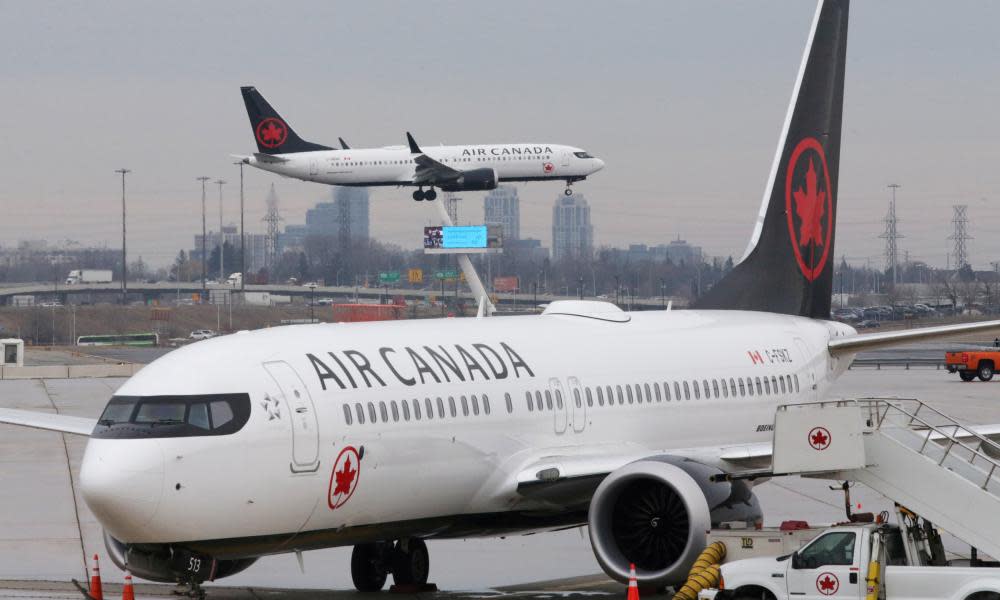Legal dispute rages over unsolved C$24m gold heist at Toronto airport

A brazen gold heist at Toronto’s main airport, in which thieves seized nearly C$24m ($17m) worth of gold bars and cash, is still unsolved after more than half a year.
But the airline and armoured car company that handled the cargo are now locked in a bitter lawsuit over the theft, with each saying the other is to blame for one of Canada’s largest ever heists.
In April 2023, 24 gold bars and nearly $2m (C$2.7m) in cash were stolen from an airport cargo warehouse at Pearson international airport, after a fake waybill was used to claim the cargo.
In October, the American cash-handling company Brink’s alleged in a legal filing that Air Canada’s lax security allowed a thief to make off with the valuable cargo 42 minutes after arriving at an airport warehouse.
Now it has emerged that Air Canada has countered, alleging Brink’s shipped the gold and cash from Zurich to Toronto without declaring its value, failing to add any insurance and declining to pay extra for added security.
“Brink’s Switzerland Ltd did not request from or pay to Air Canada for any insurance with respect to the cargo carried under this air waybill nor, to Air Canada’s knowledge, did Brink’s Switzerland Ltd obtain any such insurance at all,” said the airline’s statement of defense, adding the company “elected for its own reasons not to declare a value for carriage and … not to insure these shipments” and instead paid the standard rate for Air Canada’s services.
The Brink’s lawsuit says thieves easily stole the gold by simply using a falsified waybill because Air Canada’s security measures at its cargo handling facility were insufficient.
Brink’s says that because of this lax security, thieves were able to leave with a haul of gold weighing 400kg and stacks of cash weighing more than 50kg.
Both companies have invoked the Montreal convention, which regulates international shipments and sets a compensation limit for the loss of cargo.
Air Canada says the convention caps its financial liability and calls the damage claims “excessive” and “too remote” for a loss which was not caused by the company.
Brink’s, however, argues there is no limit to the compensation it is owed under the convention. Brink’s also said it paid extra for the shipments and that it marked the waybills so that Air Canada staff knew the cargo contained banknotes and gold bars, adding that it requested “special supervision” of the crates.
None of the statements or allegations filed in the lawsuit documents have been tested in the federal court which is hearing the case.

